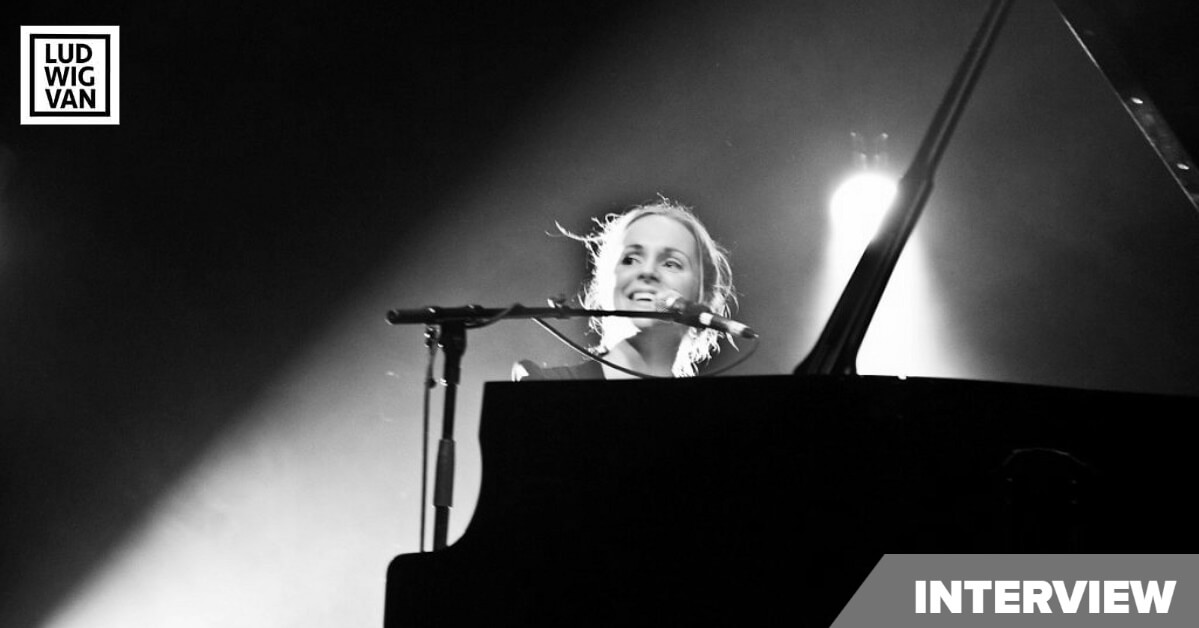
Atmospheric pop? Neoclassical new age? Chill out? All of the above? The music of Agnes Obel defies compartmentalization.
While she may not be a household name in North America, the Berlin-based, Danish-born singer-songwriter and musician has been building a career in the music business for the last decade. Her albums have won multiple Danish Music Awards, and her songs have been used in TV and movies, including the theme music for the Canadian series Cardinal. Her albums hit the top five in Denmark, Belgium, the Netherlands, and Belgium. She has a loyal following in Berlin, where she’s lived since 2006, and online, with more than 217K YouTube subscribers.
Agnes is currently on tour in Europe in advance of her fourth album, Myopia, set for release on February 21. The tour hits North America in April, with a Toronto date on April 26.
Born in Copenhagen, both parents were musical. Her father was a former jazz musician, and her mother a talented pianist. “It’s true my Mom played piano a lot,” she says. She doesn’t remember a specific time when playing music wasn’t a part of her life. “I started piano lessons when I was very young, and went to school where there was a lot of music,” she says. “I’ve been playing piano since as long as I can remember. It grew with me somehow.”
She was around 12 or so when she started to write her own music. “I think I started writing instrumental pieces — just mimicking what I was playing.” From there, she moved on to cover bands and Beatles songs in high school. At 17, she met her first songwriting partner, and her work began to develop its own style.
She describes many influences that led to her unique style, including Joni Mitchell. “It’s so personal and so idiosyncratic,” she says of her music. She lists other influences from Debussy, Satie, and Ravel to Scott Walker.
Her NPR Tiny Desk concert (2017):
All her albums share one thing: a focus on vocals. “They are driven by singing,” she says. However, over the course of four releases, her notions of songwriting and composing have evolved.
As she describes them, the first album, Philharmonics (2010), was a compilation of sorts of the work she’d produced to that point. For the second album, 2013’s Aventine, she began to play with production, but it was just the beginning.
Both of the first two albums went Platinum. Agnes won the IMPALA (The Independent Music Companies Association) Album of the Year Award 2016 for her third release, Citizen of Glass.
It was on the third album, Citizen of Glass (2016), that she began to take her music in a different direction. It was a concept album where she played with the idea that our era has made everything public. “I was working with the idea that technology has changed our perception of the world,” she says. “Technology is designed to hijack our brains,” she muses. We all begin to doubt ourselves against its onslaught. “We make stories to make sense of the randomness of our lives.”

Music production has become a bigger and bigger part of the picture — a way of shaping the sound according to the meaning of the song. “I think I’m very inspired by the idea,” she says. “With my previous album and this one.”
On Citizen of Glass, she layered 250 tracks on top of each other, and sang harmonies with a digitized male version of her own voice. She also used a replica of a 1920s synthesizer called a Trautonium.
She’s released one single from the new album already, “Island of Doom”. In it, she uses pitched down piano, cello pizzicato and vocals, with choirs pitched up or down. On the album, Agnes plays piano and keyboard, with frequent collaborator Kristina Koropecki on cello. “I’ve always worked with cello, because it’s so versatile,” she says, pointing out that it can play a bass line as well as a melodic one. It also occupies a unique spot in the pop music landscape. “It doesn’t play with any existing associations,” she notes.
She’s worked with a lot of processing on the new album as well. Creating song-soundscapes is a direction that draws her. “I really like to work with something I don’t completely understand, so that I learn from it,” she says. “I don’t want to have a fixed and completely clear vision of everything.”
Videos for her songs are made by her husband, Alex Brüel Flagstad, with an artistic sensibility that adds to the effect. “The videos are made by my husband,” she says. “He has a very artistic approach with it.”
She’s currently on the European and Scandinavian leg of her tour. She’ll be on the road until April, when she hits North America, with a Toronto date at Meridian Hall on April 26. Agnes will also be performing in Montreal (April 23) and in Vancouver (May 4).
Her fourth album Myopia will be released on February 21, 2020. Details
#LUDWIGVAN
Want more updates on classical music and opera news and reviews? Follow us on Facebook, Instagram or Twitter for all the latest.
- PREVIEW | Cellist Elinor Frey And London Symphonia Dive Into Jewels Of 18th Repertoire - April 25, 2024
- PREVIEW | The Hamilton Philharmonic Orchestra Says Good-Bye To Conductor Gemma New With Music - April 25, 2024
- THE SCOOP | Not-For-Profit Euterpe: Music Is The Key Received Three-Year Grow Grant - April 24, 2024



